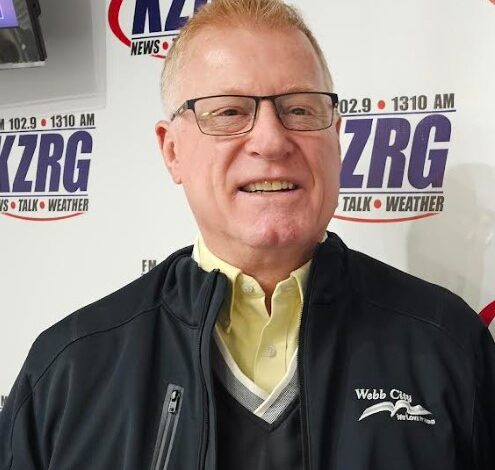Webb City mayor highlights grants, progress on odor issue

Webb City Mayor Lynn Ragsdale joined the KZRG Morning Newswatch to talk about several topics important to the community.
That includes their recent designation as a “Blue Shield” city from the Department of Public Safety.
“The legwork is done by the police department and they do a great job with that. Then when grants are awarded, it comes to the city council because believe it or not, we actually have to approve the receiving of grants. You have to actually vote on taking free money,” said Ragsdale. “We’re glad that’s a part of the process because it does bring it to the awareness of the council that those grants are coming, how they’re being spent and how that improves, in this case, training, equipment and so on for our police department. That’s always a good thing”
“You know, there’s a reason we laugh about that. Who would vote no on free money? But then the reality is there is no such thing as free money,” added Ragsdale. “So if something would come from the state or federal government that we just determined had way too many strings attached or it was a partnership where we did not want to invest our part in the partnership, we would say no because it would not be something that would benefit the city.”
Ragsdale also gave us an update on the odor issue that’s been plaguing parts of Webb City and Carterville.
“Turns out that there’s a flaw in my opinion, our city’s opinion, all the way to DNR where the process of issuing permits is really, we think, flawed. And so there’s a complex issue between agricultural spreading of sludge and commercial or industrial spreading of sludge. And how do you get a permit for one versus the other? That is very unclear and we think that’s part of the problem. Then comes the inspection process. Who does that? How did they do that? What’s the enforcement mechanism?
Ragsdale says they then have an ordinance where it says we can enforce an ordinance up to a mile outside our city limits if a smell is coming into our city limits.
“But then you run into a wall when you can’t identify exactly where that’s coming from because it’s not in your city limits. Thus we need inspections from DNR on that. So there’s lots of moving wheels on this I’m proud of those who are involved in trying to get to its source. And that source is not just exactly where this smells coming from, but how the mechanics work of issuing these permits,” added Ragsdale.
“For an example, the permit is issued with a 30 day period of time in which you can complain. The problem is that the DNR is not required to tell anybody that a permit was issued. So you don’t know when the clock starts ticking on the 30 days. So then if nobody spreads within 30 days now, that period is over before anybody smells the problem. And so it’s a very simple system to work around. And some of that is what we’re attacking and trying to get corrected. Some of that is for the future for sure. We don’t want this to happen again and we’re trying to stop what’s happening now.”



